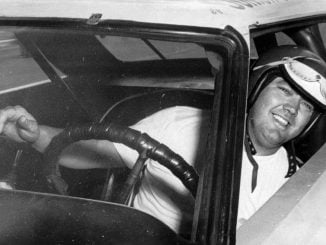WASHINGTON, D.C. — Former Secretary of State George P. Shultz, a titan of American academia, business and diplomacy who spent most of the 1980s trying to improve Cold War relations with the Soviet Union and forging a course for peace in the Middle East, has died. He was 100.
Shultz died Saturday at his home on the campus of Stanford University, where he was a distinguished fellow at the Hoover Institution, a think tank, and professor emeritus at Stanford’s Graduate School of Business.
A lifelong Republican, Shultz held three major Cabinet positions in GOP administrations during a lengthy career of public service.
He was labor secretary, treasury secretary and director of the Office of Management and Budget under President Richard M. Nixon before spending more than six years as President Ronald Reagan’s secretary of state.
Shultz was the second-longest serving secretary of state since World War II and had been the oldest surviving former Cabinet member of any administration.
Condoleezza Rice, also a former secretary of state and current director of the Hoover Institution, said in a statement that Shultz “will be remembered in history as a man who made the world a better place.”
Over his lifetime, Shultz succeeded in the worlds of academia, public service and corporate America, and was widely respected by his peers from both political parties.
As the nation’s chief diplomat, Shultz negotiated the first-ever treaty to reduce the size of the Soviet Union’s ground-based nuclear arsenals despite fierce objections from Soviet leader Mikhail Gorbachev to Reagan’s “Strategic Defense Initiative,” or Star Wars.
The 1987 Intermediate Range Nuclear Forces Treaty was a historic attempt to begin to reverse the nuclear arms race, a goal he never abandoned in private life.
“Now that we know so much about these weapons and their power,” Shultz said in an interview in 2008, “they’re almost weapons that we wouldn’t use, so I think we would be better off without them.”
Former Secretary of State Henry A. Kissinger, reflecting in his memoirs on the “highly analytic, calm and unselfish Shultz,” paid Shultz an exceptional compliment in his diary: “If I could choose one American to whom I would entrust the nation’s fate in a crisis, it would be George Shultz.”
George Pratt Shultz was born Dec. 13, 1920, in New York City and raised in Englewood, New Jersey. He studied economics and public and international affairs at Princeton University, graduating in 1942. His affinity for Princeton prompted him to have the school’s mascot, a tiger, tattooed on his posterior, a fact confirmed to reporters decades later by his wife aboard a plane taking them to China.
At Shultz’s 90th birthday party, his successor as secretary of state, James Baker, joked that he would do anything for Shultz “except kiss the tiger.” After Princeton, Shultz joined the Marine Corps and rose to the rank of captain as an artillery officer during World War II.
He earned a Ph.D. in economics at MIT in 1949 and taught at MIT and at the University of Chicago, where he was dean of the business school. His administration experience included a stint as a senior staff economist with President Dwight D. Eisenhower’s Council of Economic Advisers and as Nixon’s OMB director.
Shultz was president of the construction and engineering company Bechtel Group from 1975-1982 and taught part-time at Stanford University before joining the Reagan administration in 1982, replacing Alexander Haig, who resigned after frequent clashes with other members of the administration.
A rare public disagreement between Reagan and Shultz came over the secret arms sales to Iran in 1985 in hopes of securing the release of American hostages held in Lebanon by Hezbollah militants. Although Shultz objected, Reagan went ahead with the deal and millions of dollars from Iran went to right-wing Contra guerrillas in Nicaragua. The ensuing Iran-Contra scandal swamped the administration, to Shultz’s dismay.
After Reagan left office, Shultz returned to Bechtel, having been the longest serving secretary of state since Cordell Hull under President Franklin D. Roosevelt.
He retired from Bechtel’s board in 2006 and returned to Stanford and the Hoover Institution.
In 2000, he became an early supporter of the presidential candidacy of George W. Bush, whose father had been vice president while Shultz was secretary of state. Shultz served as an informal adviser to the campaign.
Former President Bush said, “America has lost one of its finest statesmen with the passing of George Shultz.”
“He was a person of deep intellect, talent, and patriotism,” Bush said in a statement. “He took on a wide range of important jobs and did them all well. George Shultz was a great public servant, and America is better because of that service.”
Shultz was married to Helena “Obie” O’Brien, an Army nurse he met in the Pacific in World War II, and they had five children. After her death, in 1995, he married Charlotte Maillard, San Francisco’s protocol chief, in 1997.
Shultz was awarded the nation’s highest civilian honor, the Presidential Medal of Freedom, in 1989.
Survivors include his wife, five children, 11 grandchildren and nine great-grandchildren.


